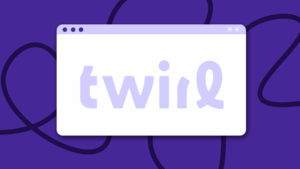Combine Ad Sets and Campaigns
After bouncing around tech start-ups and university literature programs, Joe has finally settled down as Billo’s Head of Content. Joe now spends his days writing ads about ads, teaching clients how to craft killer content, and combing through our web copy with a bold red Sharpie.

Today’s 21st-Century consumer is more complex than ever. Better informed, more distracted, and suffering from information overload, it takes more to keep the modern consumer engaged than ever before. Enter Ads sets: unique and creative uses of publicly accessible space, a process that, if done right, can lead to massive economic and influential impacts – oh, and a very happy (read: interested) customer.
But where do we begin? After all, the world of advertisement is anything but narrow, and by the time we’re done traversing through it all, we might have the second – or third – generation of consumers ready to knock on our doors!
Today, we’re going to transport ourselves back into the dorms of Harvard and meet our favorite little blue friend: Facebook, and its occupation with everything advertisement.
Facebook and Advertisement: A Digital Love Story
In between all the puppy images and weekend BBQ status updates from your neighbor, there’s a constant stream of consumption that you – and all audiences – are intaking from Facebook: ads! From sponsoring the latest posts to running full-blown marketing campaigns, Facebook’s different audiences are a vital traffic segment for advertisers everywhere.
In short, Facebook’s advertising activity is a three-tiered process consisting of ad campaigns, ad sets, and ads. Perplexed? Let’s break this down so you can form a better understanding.
The Facebook Trilogy: Ad Campaigns, Ad Sets, and Ads
At its face, ad campaigns work as umbrellas, encapsulating several ad sets that then contain various ads. But what’s the distinction between the three? And are all three needed?
Ad Campaigns
A Facebook ads campaign is where you decide the essence of your targeted advertisement practice. In other words, this is the design aspect of the campaign that extends beyond the visual. This includes a number of steps, such as:
- Selecting the category that your advertisement content falls in, with some predetermined themes being employment, election, housing etc.
- Choosing the ad objectives that best fit your content. Again, there are preset options here such as increasing engagement, encouraging conversions and creating brand awareness
- Next comes the all important decision of whether to enable A/B testing within which you can compare multiple performance strategies by changing variables such as audience and placement to garner which performs better
- Facebook CBO, or Campaign Budget Optimization, allows budget setting at the Facebook campaign level rather than the ad level.
Ad Sets
In concise words, Facebook ad sets consist of multiple ads that have similar operational settings. An ad set is responsible for determining five significant features for the Facebook ad held within it: the budget, the placement, the delivery, the audience, and the schedule.
Let’s break these down:
- Budget and Scheduling
Budget and Scheduling often work together. Here, you can choose how many ads spend you’re going to incur while also deciding exactly when you want this spending to happen. For instance, you can be charged for every share or link click. You can also set a limit for each ad spend.
As for scheduling, you can decide for how long and at what times of the day and week your ad will run – a factor that is directly related to the ad cost.
- Placement
For placements, you have the choice of manual setup and automatic placements. Within this section, you decide where your ad will appear, such as in Facebook stories or on news feeds.
- Delivery
Users can pick between a standard and accelerated delivery, with the former spreading your ad placement throughout the day to avoid running out of your daily budget. As for accelerated delivery, it distributes your ad from the time of creation to the point where your daily budget has run dry, hence showing a more significant presence of your ads in a shorter time period.
- Audience
This is where user demographics become relevant – create a custom Facebook target audience by manipulating audience age, gender, location, language, and even settings such as interests. The more streamlined your audience, the better your Facebook ad will perform.
And that’s your Facebook ad set created!
Ads
Now it’s down to your final product, the thing that your audience will actually see: your ads. It’s time for the ad creatives to come up front!
To help you out, here’s a simple step-by-step to setting up a killer Facebook ad:
- Give your ad a name and identity, that is, what Facebook page is the ad going to be linked to?
- Select ad formatting. Options include single image/video, carousel, slideshow and collection
- Add your art! Yes, that means any images or videos that you want to be displayed
- Put in some text, namely, a heading, some basic text, and a call-to-action
- More advanced settings will also enable you to display your ad in different languages and have a website url embedded in it
Once you’ve gone through all these steps, your ad will be available for a view! Pretty neat, right? But although this seems like an easy enough process, there’s a lot that goes into genuinely mastering Facebook advertising. There’s a whole trade to be learned from managing the Facebook ads campaigns structure to being on top of Facebook’s algorithms.
And while selecting the right campaign objectives and creating an ad that is appealing to your target audience is of the essence, we’re going to be delving into the importance and intricacies of the ad set level. After all, it packs much more than is apparent, and execution of the ad set level can very well make or break your entire Facebook advertising process.
Mastering the Facebook Ad Set
So, you’ve got the basics of creating Facebook ad sets under lock and key, but you must be wondering why do I even need Facebook ad sets. Why not just have one and be done with it? After all, there’s plenty of other stuff you need to get around to.
Hold on, before you make any hasty plans take out a few minutes and see all that multiple ad sets can contribute to making your Facebook advertising a surefire success!
Multiple Ad Sets: To Be or Not to Be
Okay, admitted, it’s more work. But is the extra work worth it? Absolutely! Typically, it’s recommended that each ad set contain anywhere between three to five ads. This allows you to make the most of your spending while lowering per unit cost and also fuelling your campaign to its max point. Any more, and things start to go downhill – after all, everything has a capacity.
And what’s more, the greater the number of ad sets, the longer your campaign will run. That means more views, more impressions, and more conversions.
But perhaps, the most excellent reason to incorporate separate ad sets within one campaign is optimization, optimization, and optimization! Having different channels will allow you to have more control over where each ad ends up. Think about it, three ad sets means having the ability to choose three different target audiences – not only will viewers see what is more relevant to their interests, but this also makes them more likely to engage with your content. And isn’t reaching people through your post a campaign objective anyways?
Oh, and since we humans love comparison and relativity, having more than one ad set offers just that: a chance to compare and contrast, seeing which strategies work best, and ensuring that you set up future ads for success. It’s a win-win situation!
Still, feeling unsure because of the extra work it entails? Don’t worry. We’re not judging. It’s human nature to want to take a quick way out. But we have got a solution for you: the Facebook Ads Manager!
Facebook Ads Manager: Making things Easy from the Very First Step
With the latest system update to the Facebook ads manager, you can now create different ads sets simultaneously! While this new feature doesn’t allow complete liberty to customize each ad set, it does cover the basics.
You can select different audiences via the audience targeting feature and apply cost control features by opting for even distribution or balanced distribution. The latter affords more money to ad sets with audiences of greater size and still chooses to pick a daily or lifetime budget for your ad set.
Although further optimization specifications, delivery, and placements won’t be mass customizable, you will be able to set up these factors for each ad set manually. And you’re still subject to the same algorithm functions, so there’s no need for new learning.
So really, you’re not missing out on anything – just building better Facebook ad campaigns with work that is actually reduced once you look at it!
Daily Unique Reach
Daily unique reach, the factor that’s going to either win over or annoy your audience. Specifically designed for Facebook users, this feature allows you to control ad delivery rates. You might think that the Facebook campaign is the one that shows up multiple times, but really, do you want to overwhelm and annoy your demographic due to excessive targeting? If your answer is no, then you’re on the right track, and with the daily unique reach example, you can test it out for yourself!
Lookalike Audience
While repetitive viewing by the same audiences is not optimal, expanding your audience sample is the path to success for any Facebook ad. By enabling the lookalike audience function in the ad set options, your different ad sets will reach Facebook users that mimic your preset audiences demographically, driving more traffic to your campaign, resulting in more conversions, greater website clicks, increased video views, and overall better value for money!

So, there you have it: a concise A-Z of everything there is to know about Facebook Ad Sets and how to master them!
Continue learning:
Head of Content
After bouncing around tech start-ups and university literature programs, Joe has finally settled down as Billo’s Head of Content. Joe now spends his days writing ads about ads, teaching clients how to craft killer content, and combing through our web copy with a bold red Sharpie.

Authentic creator videos, powered by real performance data
22,000+ brands use Billo to turn UGC into high-ROAS video ads.
The Power of Content Seeding: How to Plant Your Brand Across the Web
Content distribution has shifted — dramatically. Today, 70% of B2B [...]...
Read full article10 Common Digital Marketing Mistakes to Avoid in 2025
Digital marketing is fast, and what worked years ago might [...]...
Read full articleBest Twirl Alternatives: Which to Choose for Your Business
Twirl is one of many platforms helping brands connect with [...]...
Read full article



